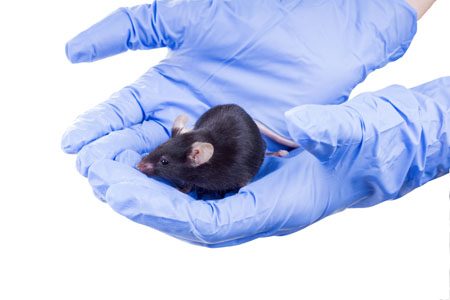Immune Response to Repeated Stress Alters Behavior in Mice
In research presented at the 2016 meeting of the Society of Biological Psychiatry, Jonathan P. Godbout described how an immune reaction to repeated stressors may lead to anxious behaviors in mice.
Mice were repeatedly defeated by a larger animal, a form of stress that produces a depression-like state. This provoked an immune response in the mice—the release of a type of white blood cells called monocytes from the bone marrow into the circulatory system. These inflammatory monocytes then traveled to the brain and spleen, attracted by signaling proteins called chemokines. The monocytes in turn produced inflammatory marker interleukin-1beta.
The defeat stress also provoked a reaction in the central nervous system, where microglia were activated.
These changes produced inflammation and anxiety-like behaviors in the mice. Blocking the microglial activation, monocyte recruitment to the brain, or interleukin-1beta signaling each reversed the anxiety-like behaviors.
Another researcher, Scott Russo, has shown that leukocytes, another type of white blood cells, secrete inflammatory interleukin-6 following defeat stress, and blocking this secretion prevents defeat stress–related behaviors.


